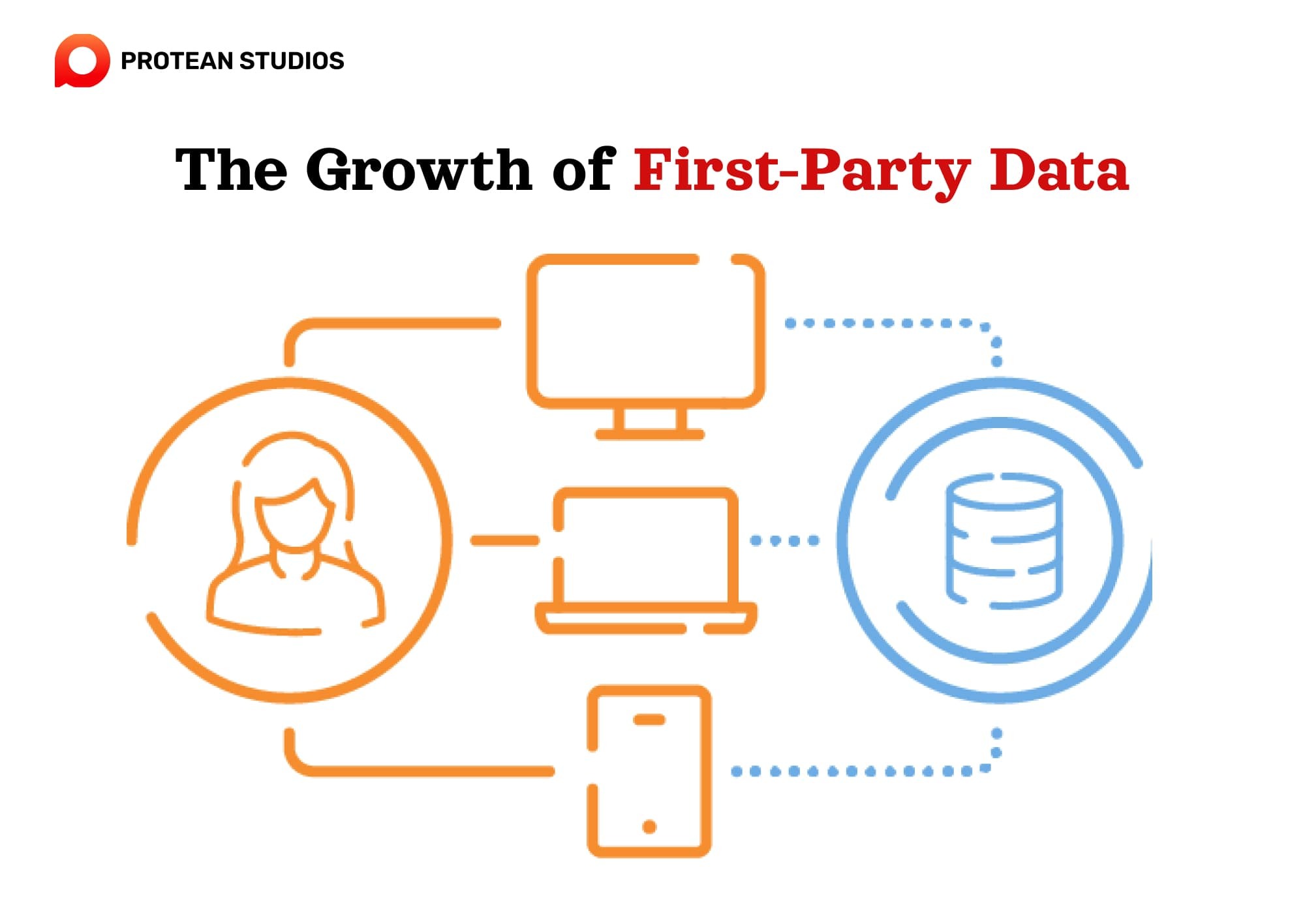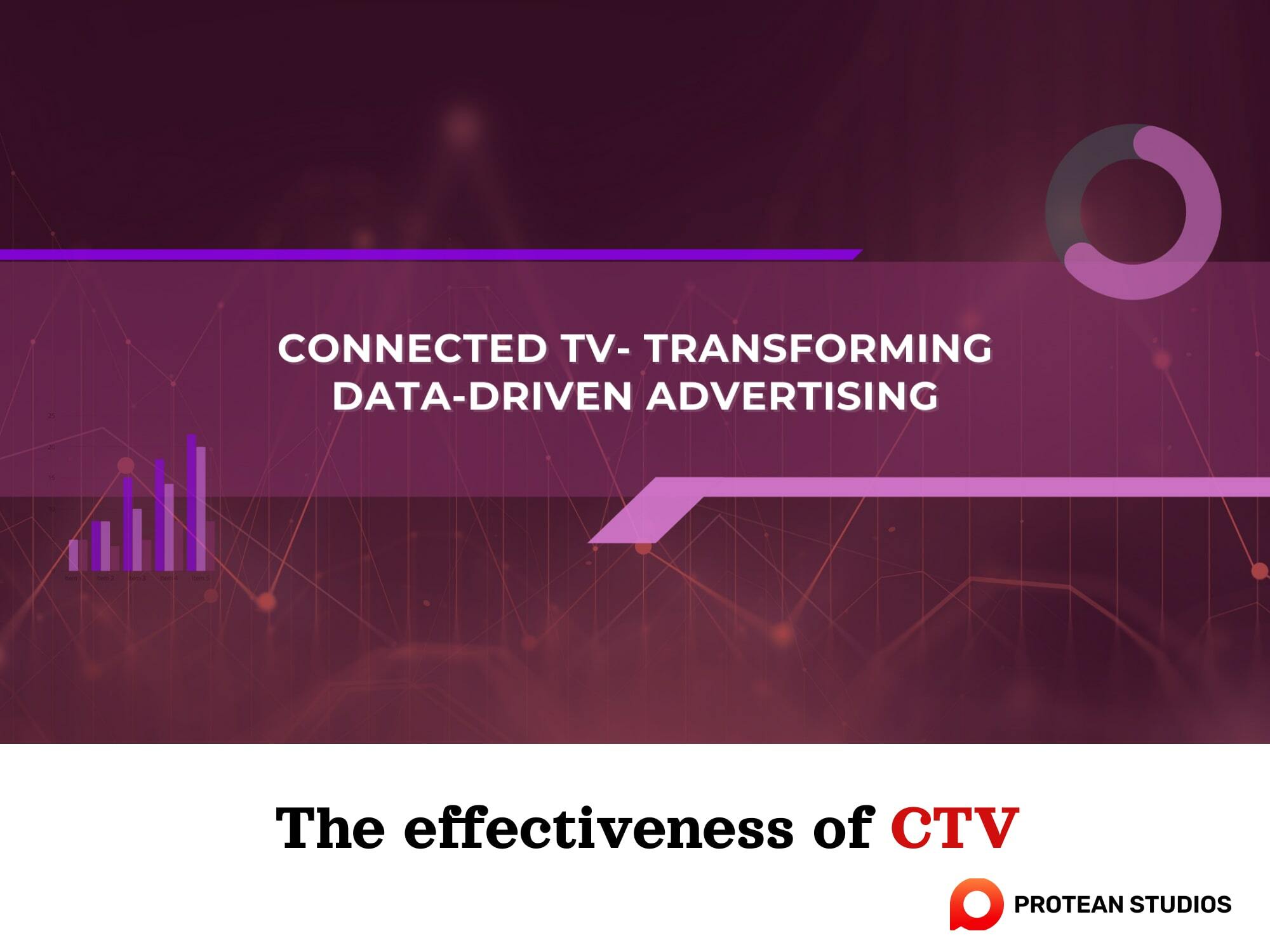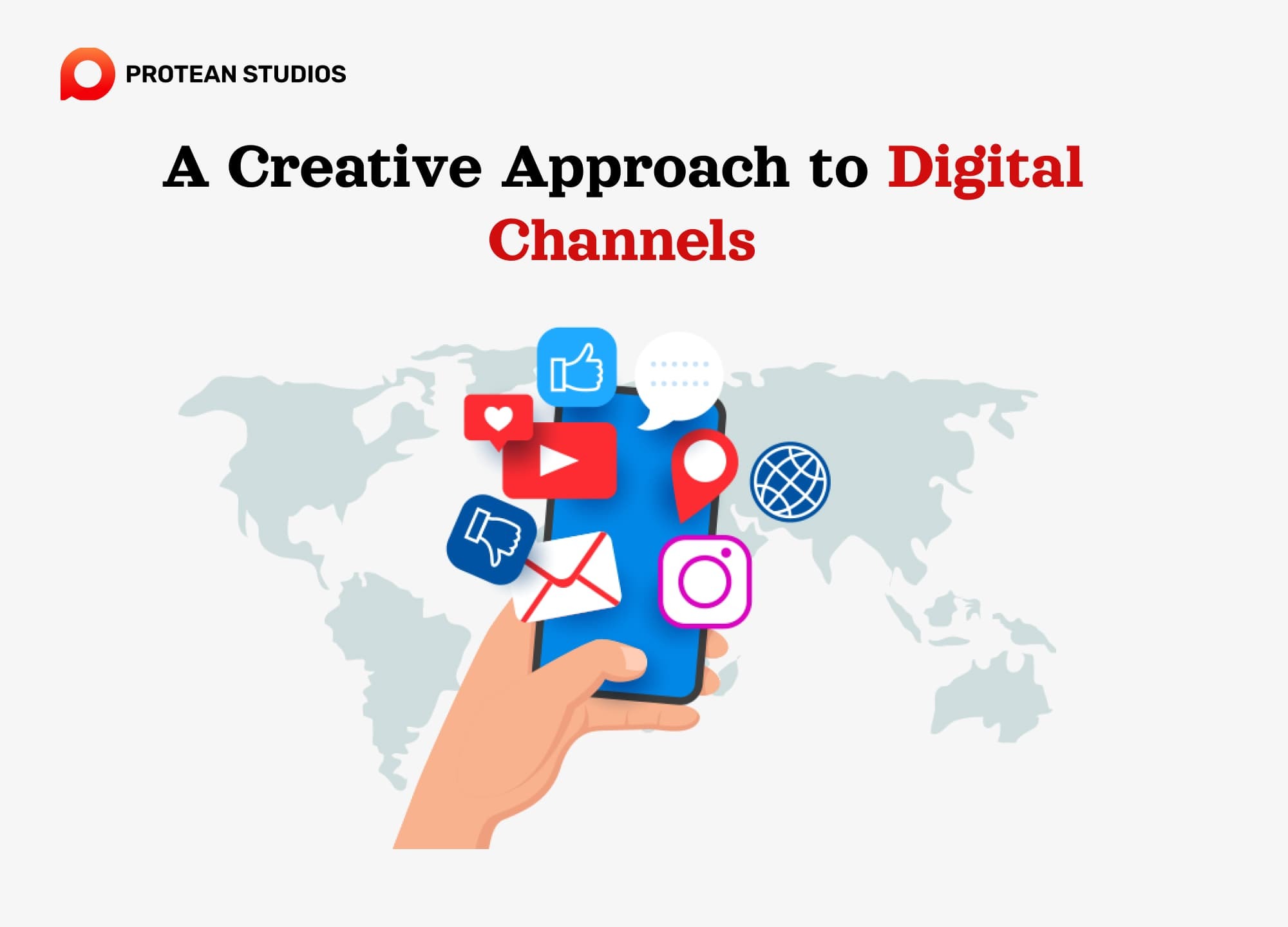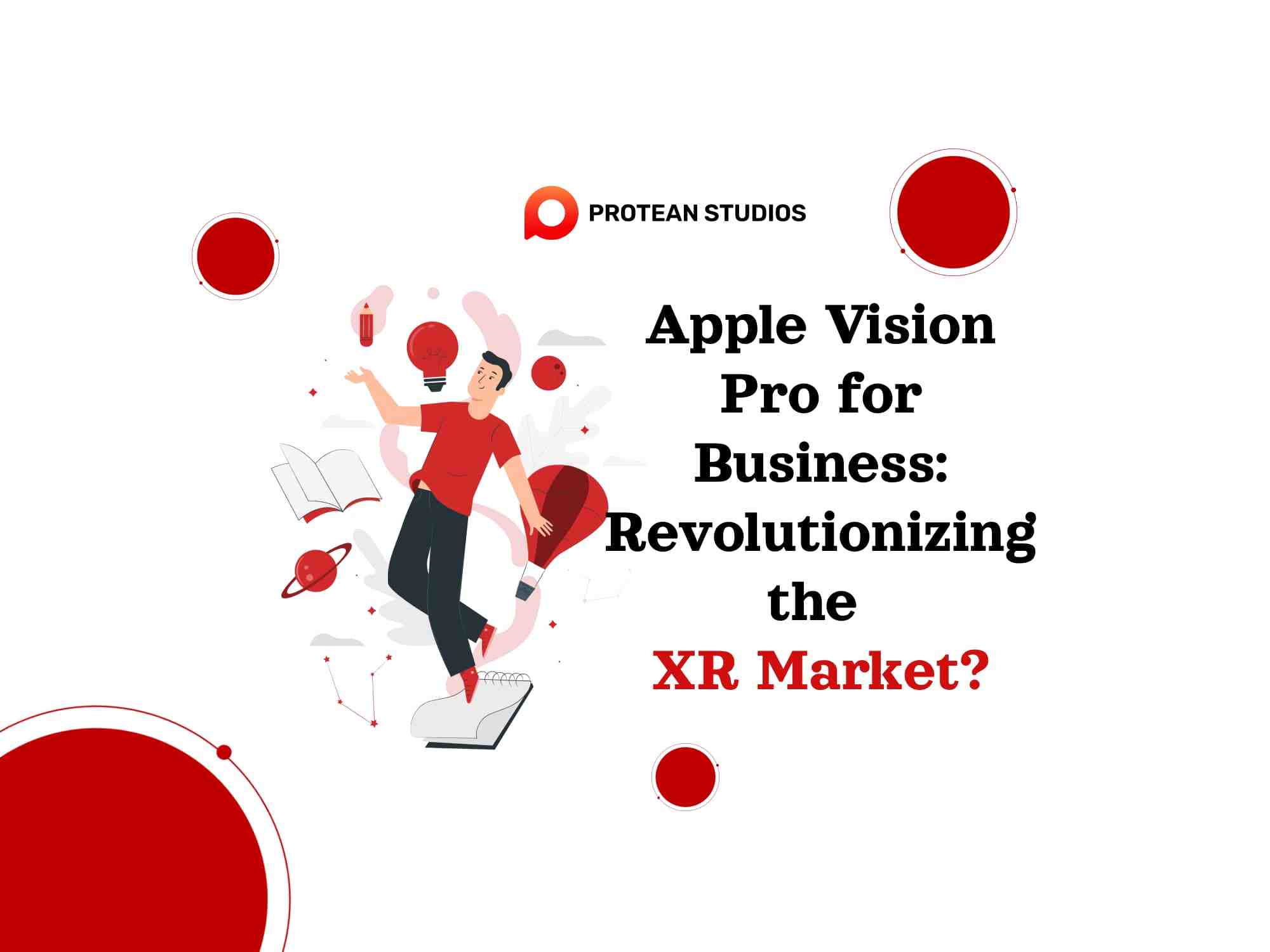In today's era of rapid digital evolution, the advertising landscape is also changing. In 2024, we're witnessing a surge of innovation driven by privacy concerns, consumer habits, and the relentless march of technology. This article delves into the hottest AdTech trends shaping the industry right now. And then, offering some knowledge into the exciting future of advertising.
1. Growth of First-Party Data
One of the biggest trends in adtech for 2024 is all about using something called "first-party data."
In 2023, Google made a big announcement. They said they would slowly stop using "third-party cookies." These are little bits of data that websites other than the ones you visit put on your device. Google is doing this to make sure people's privacy is better protected, and this change will happen throughout 2024.

Thus, businesses are starting to rely more on "first-party cookies." These cookies only work on the websites users visit. This shift means that how companies track and store information about users is changing. And that's going to affect how they show you ads.
Read more: Understanding Advertising Technology (AdTech)
2. Leverage video advertising campaigns.
Video content continues to dominate the digital space, and advertisers are taking note. In 2024, we're seeing a significant increase in video advertising campaigns, with brands investing in both short-form and long-form content. Interactive video formats, with features like shoppable ads and clickable elements, further enhance the user experience and drive conversions. The rise of 5G technology has also improved streaming capabilities, allowing for higher-quality content and more interactive ad formats.
3. Transparency in Brands
Consumers are demanding greater transparency from brands, and this reflects in adtech. Advertisers are adopting more open practices, providing clear information about data usage, ad targeting, and campaign results. This transparency is building trust between consumers and brands, leading to more effective campaigns and customer loyalty.
4. Influence of Digital Natives
The next AdTech trends are digital natives. Digital natives, or those who have grown up in the digital world, are now becoming key decision-makers in the marketplace. Their preferences are influencing adtech trends, with a focus on mobile-first strategies, social media platforms, and influencer collaborations. Advertisers are tailoring their campaigns to resonate with this tech-savvy demographic, which values authenticity and creativity.
5. Effectiveness of CTV
The popularity of data-driven connected TV (CTV) viewing is rising, especially since over 68% of TV watching happens through streaming devices.
CTV viewership continues to grow, accounting for 50% of all TV hours consumed—a staggering 11.5 billion hours. This growth is not only in the number of viewers but also in the time spent consuming content. With half of all households with WiFi now streaming TV, the options for consumers have expanded. It includes ad-supported video on demand (AVOD), free video on demand (FVOD), free ad-supported television (FAST), and virtual multichannel video programming distributors (vMVPD).
Even though CTV is advancing, it's still a prospective sector. In 2024, there will be a focus on tackling the remaining challenges within the industry.

6. AI and Digital Marketing Merge
The integration of artificial intelligence (AI) into digital marketing has revolutionized the AdTech trend. In 2024, this trend will continue to dominate as AI technologies become more sophisticated, enabling hyper-personalization and real-time decision-making.
AI's ability to analyze vast amounts of data and predict consumer behavior is empowering marketers to create more effective and targeted campaigns. The merger of AI and digital marketing is not about automation; it's about creating a more intuitive and responsive marketing ecosystem that can learn from and adapt to changing consumer patterns.
Related Article: Tips To Stay On Top Of Advertising Technology
7. Contextual targeting
Contextual targeting is making a significant comeback in the adtech space. With privacy concerns on the rise and cookies becoming obsolete, advertisers are turning to context as a reliable means of reaching their audience. By analyzing the content that users are engaging with, advertisers can serve ads that are relevant to the user's current state of mind, increasing the likelihood of engagement. This method respects user privacy and aligns with the growing demand for more ethical advertising practices.
8. A Creative Approach to Digital Channels
Creativity is at the heart of digital channels' evolution. As the digital landscape becomes saturated, brands are looking for new ways to stand out. In 2024, we're seeing a surge in brands taking bold, innovative approaches to their digital campaigns.

From interactive ads to augmented reality experiences, brands are pushing the boundaries of what's possible in digital advertising. This creative renaissance is not only captivating consumers but also setting a new standard for what digital advertising can achieve.
Q&A: Questions related to AdTech trends in 2024
To help you know more about AdTech trends, we answer some popular questions below.
How is the reliance on first-party data shaping AdTech strategies?
The diminishing role of third-party cookies is forcing a major shift in ad-tech strategies. Marketers are placing a premium on first-party data, which offers a more reliable and privacy-compliant way to understand their audience. This means collecting information from website visits, app interactions, and customer loyalty programs.
When leveraging this rich resource, brands can create targeted ad campaigns that resonate with their audience and deliver better results. Yet, building a robust first-party data strategy requires transparency and user consent.
You can see more: The Rise Of Zero-Party Data And First-Party Data
What impact will AI optimization have on AdTech campaigns?
AI optimization is revolutionizing AdTech campaigns by enabling more personalized and relevant ads. The use of artificial intelligence and machine learning facilitates creative optimization, improves efficiency through automated bidding, and optimizes campaigns in real-time by learning from user interactions. This leads to maximized engagement and conversion rates.
How are companies adapting to the shift away from third-party cookies in the cookieless world?
Companies are preparing for a cookie-cutter future by auditing current data practices, investing in technology solutions that support first-party data collection, and training marketing teams in new strategies. Embracing alternative technologies and forging collaborative alliances are crucial for maintaining relevant targeting without compromising user privacy.
What innovative ad formats are emerging in 2024?
In 2024, innovative ad formats will capture audiences' attention. Augmented reality (AR) ads, virtual reality (VR) experiences, and interactive ads are moving beyond traditional banner ads. Seasonally-themed video ad templates and advancements in Display and Video 360 are also enhancing user engagement and providing advertisers with robust tools for campaign management.
What changes are expected in ad automation?
Ad automation is expected to become more prevalent, with AI-powered marketing tools like chatbots, voice search optimization, and predictive analytics becoming widespread. Advertisers will leverage localized data to optimize campaigns in real-time and manage a growing volume of local campaigns. Automation will play a key role in creating transformative effects in the AdTech process.
—------------------------------------
In general, advertising technology is evolving to meet the needs of the market. Thus, it is important for advertisers to choose the right advertising tool. If you are also wondering about this, please contact Protean Studios. We have many years of experience in building and developing software applications. We ensure to bring you a convenient application that supports your business's advertising process.
If you have any questions or concerns, feel free to contact PROS for advice and a detailed discussion.




